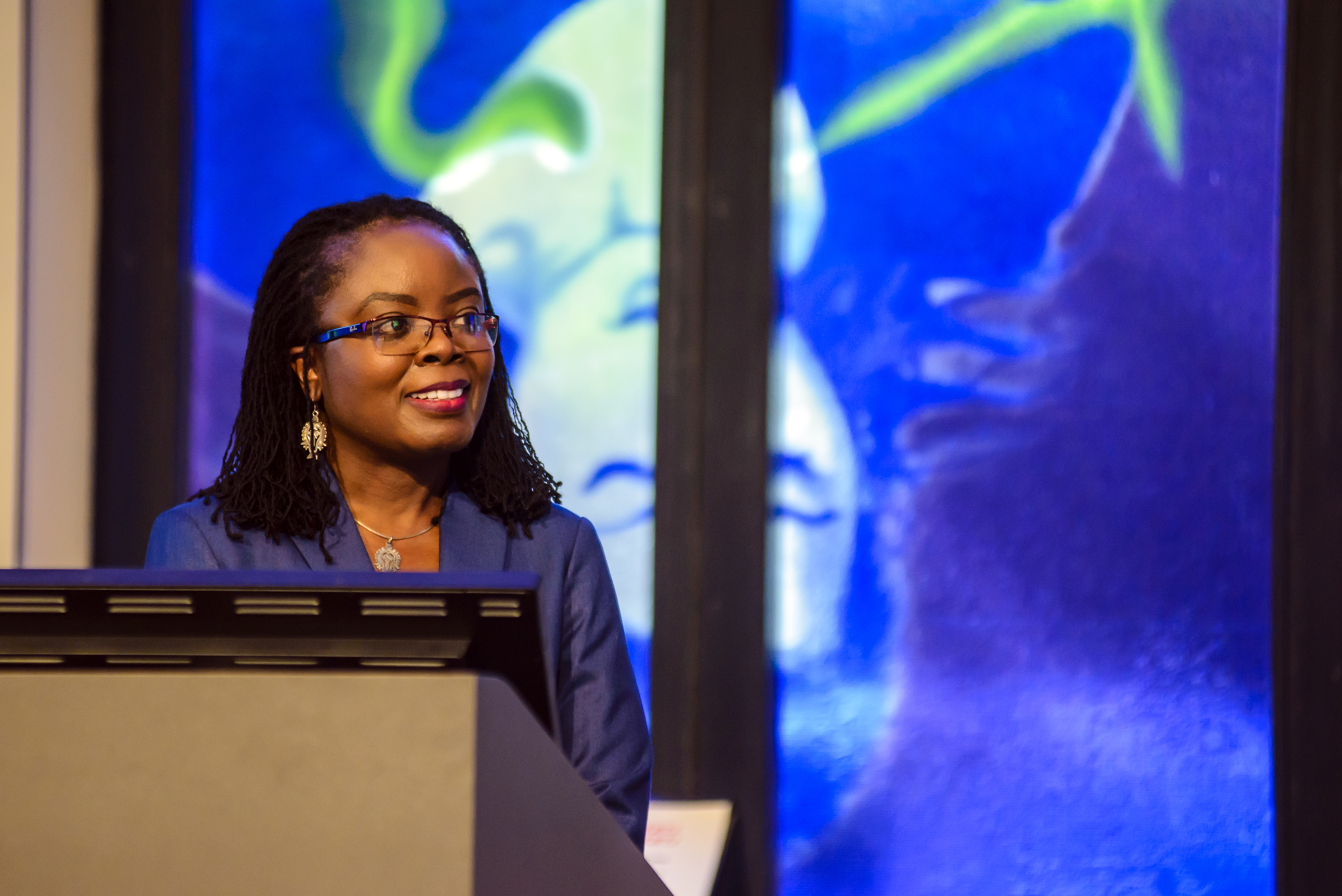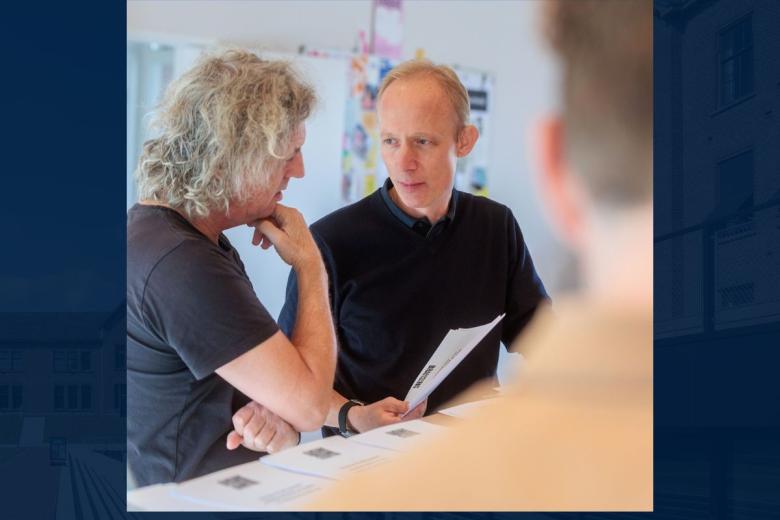Positive view of the future prevents school dropout
Why and how do some female child carers in Lesotho manage to stay in school despite being responsible for running a household? This was the question that researcher Brenda Yamba, originally from Zambia, wanted to answer. She defended her PhD at Maastricht University last June.
“Brenda was what you might call a model student”, her supervisor Melissa Siegel says immediately. “In addition to being disciplined and eager to learn, she also dealt extremely well with feedback. She was hugely motivated to get her PhD while holding down a full-time job, which made her a pleasure to work with.”
Positive view of the future
It was no coincidence that Yamba decided to dive into this subject. “I’ve been focusing on vulnerable children in Africa for years thanks to my work as a programme manager and adviser at organisations like Save the Children and United States Agency for International Development (USAID). I’m constantly surprised at how strong and resilient many are, so I wanted to figure out what could explain this attitude to life.” Yamba’s research showed that girls who take on the role of caregiver have different coping strategies, or ways of dealing with stress, which enable them to stay in school. “Their care tasks continued to occupy them during the lessons. But for many girls a positive view of the future was the most important factor preventing school dropout and allowing these teenagers to continue to fulfil their dual role. External help, too, as well as support within the family, school and community, all foster their resilience and help them keep up their attendance.”

Ideal supervisor
Yamba’s data consisted of interviews with the teenagers themselves, but also with teachers, policymakers and employees from a range of societal organisations. “The university pointed me towards Melissa as the ideal supervisor for the type of research I was doing, and looking back I’m happy with this choice. She’s an expert in qualitative research and she knows parts of Africa well, having done projects in countries like Rwanda, Morocco and Nigeria.” Although Siegel only came on board in the latter stages of Yamba’s research, the two immediately hit it off. Siegel: “Brenda came to Maastricht twice a year for an extended visit, and otherwise we did a lot of emailing and Skyping.” The synergy between them meant Siegel, in turn, learnt a lot from her PhD candidate. “Although I know parts of Africa reasonably well, Lesotho was new to me. I came to know more about it from Brenda and from her approach to the research. AIDS has had a huge impact on the country. Mortality rates are high and as a result Lesotho has many orphans. Thanks to Brenda I was able to learn a lot about how they live and the care structures surrounding them. Brenda’s stories were always inspiring. I consider her a role model, not only for her own daughters, but also for other PhD students. And it was nice to see from close up an African woman getting her PhD.”
Powerless
Although Yamba’s research was on the positive factors motivating the girls to stay in school, she often felt powerless. “Especially when I spoke to the girls myself and realised how high the chances were that they’d quit. Knowing I couldn’t do anything concrete at that time to help them was sometimes hard to deal with.”
Free secondary education
Yamba made a number of recommendations to policymakers that should make it easier for teenage girls in Lesotho to stay in school in the future. She calls for more secondary education to be provided free of charge, and for teachers to be trained in providing specialised psychological support. “And school programmes need to be developed that promote support among fellow pupils and community members for vulnerable groups such as these teenage caregivers.”
Yamba may have a little more breathing space now that she has finished her PhD, but the work doesn’t stop. Based in Pretoria, she works as an adviser for orphans and vulnerable children for the regional HIV/AIDS programme of USAID Southern Africa. “I notice that my research and the experience I gained during my PhD are already paying off in the work I’m now doing. I hope that what I’ve accomplished inspires more young women to help this vulnerable group of children in some way.”
Also read
-
SBE Researchers Awarded in NWO SGW Open Competition XS
The School of Business and Economics (SBE) at Maastricht University proudly announces that all three research proposals submitted to the latest NWO SGW Open Competition XS have been awarded funding. This exceptional outcome highlights the high calibre of SBE research and its relevance to societal...

-
From Economics to Branding and Innovation: The journey of Patrick van Thiel
Patrick van Thiel’s academic journey began in Rotterdam before he found his true calling at Maastricht University in 1989. Drawn by the Problem-Based Learning (PBL) system, he quickly excelled academically, earning 90 credits in just one year. However, it wasn’t until he discovered his passion for...

-
ICC@M at Maastricht University: competing with the best, shaping the future
Roy Broersma, Academic Director of ICC@M, bridges academia and business, enhancing Maastricht University’s impact. He aims to strengthen regional ties, foster bold ideas, and prepare students for real-world challenges.
